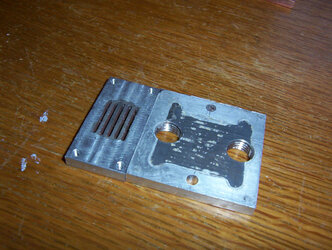Im picking up on a previous idea in this thread: sacrificial anode.
Yes, you are right, boats do use Mg sacrificial anodes (usually). A Mg strip should do the job when used to save Al also. Mg will want to give up its 2 e and will corrode before Al (which is AFTER Mg on the periodic table).
Any metal set BEFORE Al in the periodic table will sacrifice nicely for Al.
So all you have to do is put a Mg wire (etc) somewhere in the water container and change innow and then when it gets badly eaten away by corrosion.
Happy?
One more thing, metal corrosion is basically galvanic corrosion. Corrosion is all the same when it comes to metals: O2 will form oxides with the metal (FeII or FeIII oxides, Al oxides, Mg oxides, ect) and these oxides will kinda gnaw into the previously fresh metal and deposit on it. This deposit is very brittle and the integrity of the metal is compromised (you get hole eventually).
This process is accelreated in salt solutions (and I mean any ions in the water). Cl is a known accelerator of this proccess.
This is for those of you who didnt know much about corrosion. The rest, (those who know) please dont think im trying to teach you anything (smiling).
Hope it helps
PS: holy smokes, just read the article posted by BillA above, it sais basically what i just said, sorry for repeating it.
